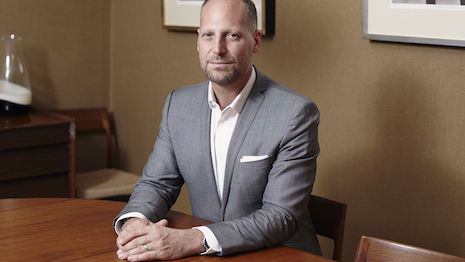 Trevor Hardy is CEO of The Future Laboratory
Trevor Hardy is CEO of The Future Laboratory
By Trevor Hardy
Rarity has always been at the heart of any definition of a luxury lifestyle. Having access to those rare and cherished things and happenings that others do not, and cannot, is a classic signposting of wealth and success.
In the brash and over-confident pre-crash 2000s, expensive labels, fine wines and high-end art epitomized the rare and sought-after.
Following our collective financial nervous breakdown in 2008, once-in-a-lifetime experiences and the building of unique memories pushed the rarity button for a more discreet luxury sector.
But what of tomorrow? How will a luxurian of 2027 signify status in a world where technological advances have made 100-plus years healthy lifespans, ubiquitous digitally powered convenience, and even space flight, affordable on a merely middle class salary?
Our research suggests a two-fold lifestyle strategy.
In the future, wealth will grant access to faster, more sophisticated versions of the digital and artificially intelligent technology available to almost everyone. Consequently, a luxury lifestyle will mean staying constantly one step ahead in the technological game.
Perhaps more significantly, a luxury existence will also appropriate things that are common-place today – ownership of a car, a physical office space, face-to-face meetings, a trip to the shops – as the coveted rarities that separate it from the everyday lives of the masses.
At home
By 2027, artificial intelligence will be everywhere: managing traffic, power grids and the minute-by-minute functioning of our homes and lives.
But whereas most people will still interact with shared artificial intelligence (AI) systems through screens and devices, tomorrow’s luxurian will be able to afford to buy a personal AI assistant and confidant that is literally woven into their lives.
Having no screens or obvious technology in their tasteful, artisan-built city center homes, will mark them out from the rest.
Instead, an integrated AI system will part of their clothing or the walls of their house, accessed by tapping a discreet piece of objet d’art in the living room, or a twist of a cufflink.
Rather than reacting to the push of a button or swipe of a screen, the luxury AI will monitor its owner’s mood and energy levels, autonomously managing social and professional engagements, clothing, eating and exercise in response to what it observes.
At work
Most people in 2027 will work from digitally connected hubs in the distant suburbs, meeting with colleagues via virtual reality technologies.
Manual and service workers who still need to travel into the city will do so using a network of shared driverless electric vehicles.
Owning a car, and the space in which to park it, will be the status symbol du jour.
The fact that you can choose to physically drive the car yourself – albeit overseen by a network of AIs to avoid collisions or traffic jams – will be a further statement of future one-upmanship.
The city center office to which you drive one or two mornings a week will further establish your VIP credentials. It suggests you are important and valued enough by your company to be worth the expense of individual headspace away from the hubbub of co-working spaces.
At the same time, it allows you to pay the ultimate compliment of face-to-face conversation with your peers and top clients in a working environment where 90 percent of meetings are conducted via holographic telepresence, or in virtual conference rooms.
At play
Going driverless on the way home, enjoying a newly-released movie or chatting with friends or family via in-car virtual reality (VR) link on the way, the future luxurian will stop off at a favorite luxury brand maison.
Part-store, part-gym, part-gentleperson’s club, the exclusive space is another chance for coveted face-time with like-minded people who share your lifestyle. It is just one of the services provided by the everything brand that delivers your shopping, updates your technology, arranges your travel, and runs your children’s school.
A COUPLE OF hours later, you are home again, taking a VR boxing class as your AI books a country house hotel for the weekend, ensuring exactly the right clothes will be waiting in the wardrobe when you check in.
Trevor Hardy is CEO of The Future Laboratory, London. Reach him at trevor@thefuturelaboratory.com.